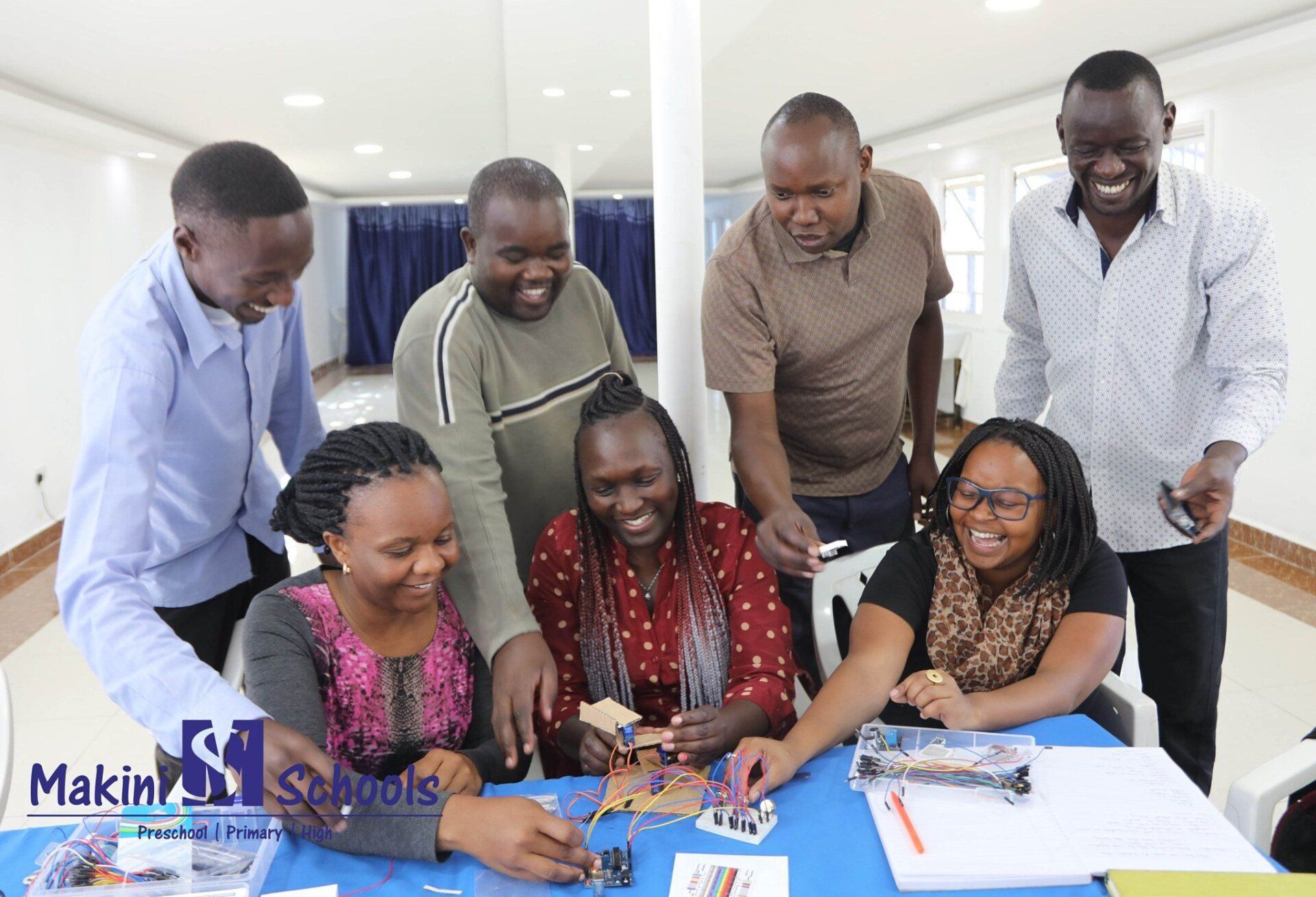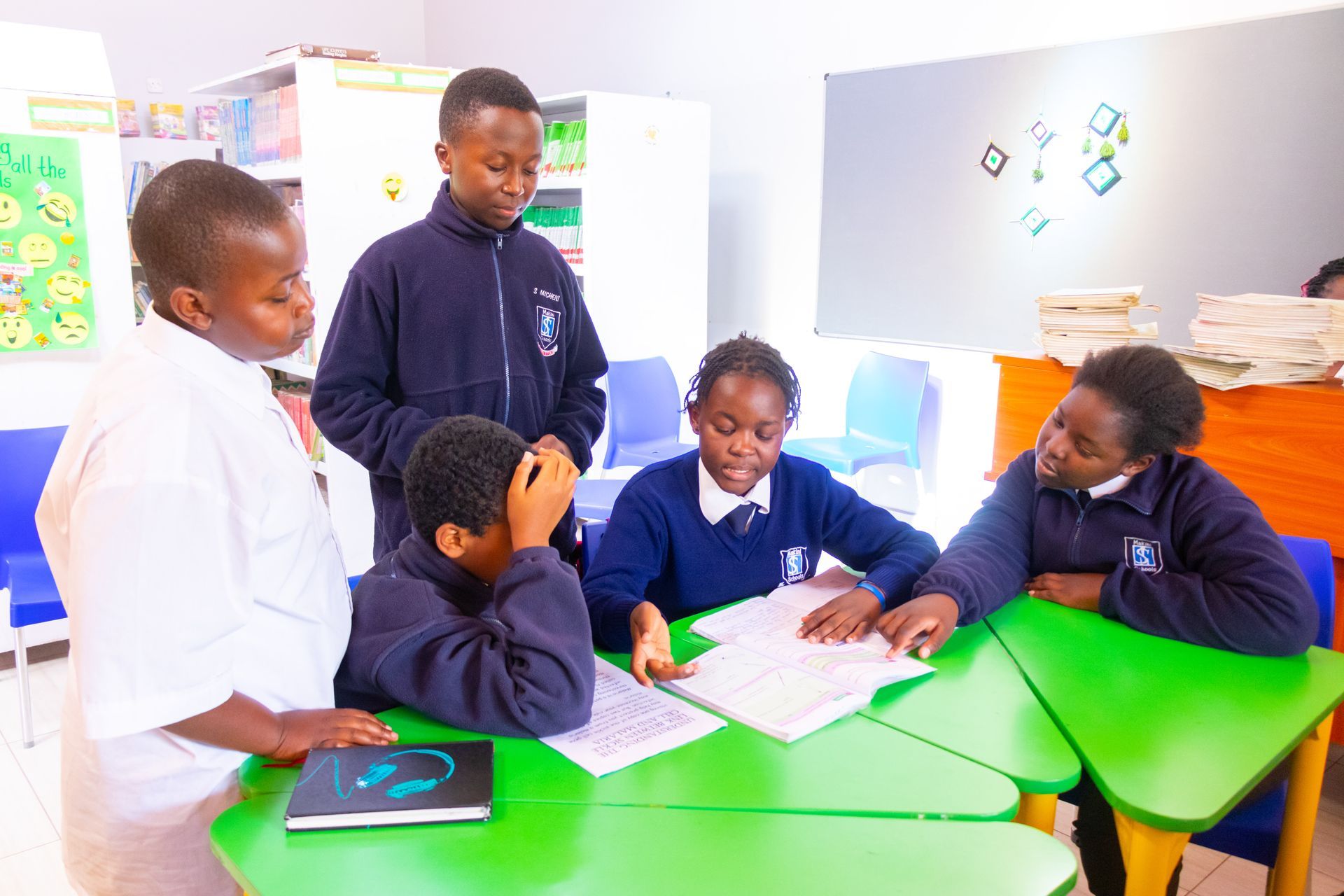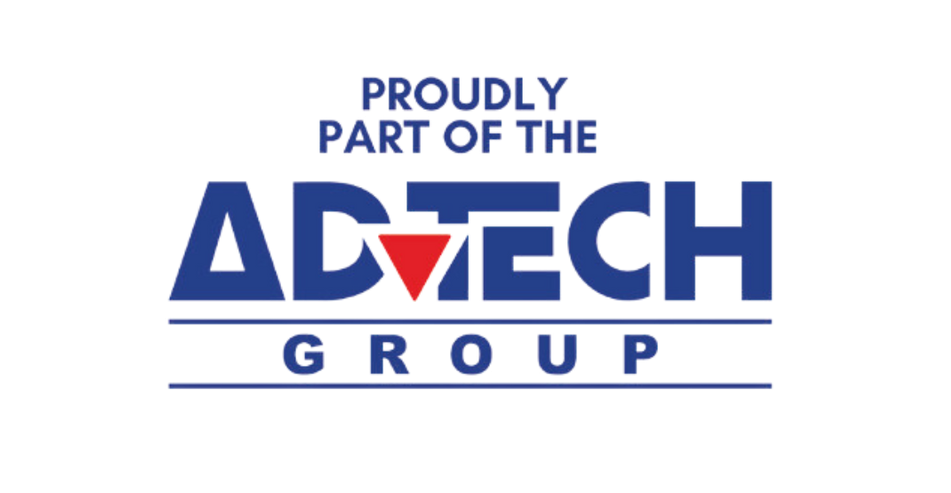The Power of a Growth Mindset
Unlocking Your Potential for Learning, Resilience, and Achievement
The world is constantly evolving. Having the ability to grow, adapt and persevere is more important today than it ever was. At the heart of this adaptability is one transformative concept: the growth mindset. Coined by psychologist Carol Dweck, this mindset isn’t just about being positive, it’s about believing that your abilities and intelligence can be developed with effort and the right strategies. Adopting a growth mindset can change how we approach challenges in school, at work or in personal life.
What is a Growth Mindset?
A growth mindset is the belief that skills and intelligence can be developed through dedication, learning and persistence. Carol Dweck introduced this idea as part of her extensive research on motivation and success. On the other side is a fixed mindset. This assumes that intelligence and talent are static traits, meaning that you’re either born with it or you're not.
Growth Mindset vs. Fixed Mindset:
Growth mindset:
- Embraces challenges
- Sees failure as a learning opportunity
- Believes effort leads to improvement
- Learns from criticism
- Inspired by other’s success
Fixed mindset:
- Avoids challenges
- Sees failure as a limit of ability
- Believes effort is pointless if you’re not naturally talented
- Ignores or resents feedback
- Threatened by others’ success
This subtle yet powerful shift in thinking can dramatically influence how people respond to setbacks and pursue goals.
The Psychology Behind Growth Mindset
The foundation of mindset psychology is rooted in cognitive science. One of the most fascinating concepts supporting the growth mindset is neuroplasticity or brain plasticity. This refers to the brain’s ability to change and form new neural connections throughout life. Research shows that the more we engage in learning and push ourselves beyond our comfort zones, the more our brains will grow and adapt.
Carol Dweck’s studies showed that students who were taught about neuroplasticity and the growth mindset improved their motivation and academic performance. Other neuroscientific studies have echoed this, reinforcing that mindset isn’t just a belief, it’s biologically supported.
Benefits of a Growth Mindset
1. Personal Development
People with a growth mindset are more likely to set meaningful goals, take risks and bounce back from setbacks. This fuels long-term personal development, as they’re constantly evolving and improving through effort.
2. Academic Success
Students who believe they can improve through hard work are more motivated and achieve better results. Teaching students how to strengthen their working memory can also improve performance across subjects, especially when combined with a growth mindset approach.
3. Career Advancement
Professionals with a success mindset look for feedback, take initiative and adapt well to change. These are key traits in today’s fast-paced workplace. Employers value lifelong learners who aren’t afraid to innovate or grow into new roles.
4. Emotional Resilience
People with a growth mindset tend to develop stronger coping mechanisms. They are more likely to practice positive thinking, view setbacks as temporary and maintain hope even during difficult times.
Growth Mindset vs. Fixed Mindset
How does each mindset play out across different aspects of life:
- In learning: A growth mindset student tends to study harder after failing a test. A fixed mindset student on the other hand, might give up and assume they're just not smart enough.
- In the workplace: A growth mindset employee would take on a difficult project for the challenge. A fixed mindset colleague avoids challenges, fearing that they will fail.
- In relationships: Growth mindset individuals believe relationships can improve with effort. Fixed mindset individuals might believe that compatibility is fixed and cannot be changed.
Real-Life Examples of Growth Mindset in Action
- Michael Jordan was once cut from his high school basketball team. He credited his relentless practice and learning from failure as a key factor in his legendary career.
- Sara Blakely, CEO of Spanx, was taught by her father to celebrate failure as evidence of trying. This outlook fuelled her success.
- Thomas Edison famously said, “I have not failed. I’ve just found 10 000 ways that won’t work,” while inventing the lightbulb.
- Oprah Winfrey faced numerous challenges and setbacks throughout her life. However, she never let these setbacks hold her back. She used them as opportunities to learn and grow.
How to Cultivate a Growth Mindset
You can cultivate a growth mindset by actively training your brain to think in growth-oriented ways. Here’s how:
1. Embrace challenges: See them as opportunities and not as threats.
2. View failure as feedback: Ask yourself, “What can I learn from this?”
3. Practice positive self-talk: Replace “I can’t do this” with “I can’t do this yet.”
4. Seek learning over approval: Focus on progress and not on praise.
When you’re consistent in these small changes, you can create lasting change.
Growth Mindset in Education
Educators can play a key role in fostering growth mindset cultures in their students. This can be done by:
- Praising effort and not just outcomes.
- Framing mistakes as part of the learning journey.
- Teaching students about brain plasticity.
- Creating environments where struggle is seen as valuable.
When students believe they can grow, they’re more motivated, more curious and more resilient.
Tools and Resources to Support a Growth Mindset
To keep building a growth mindset, here are some suggestions:
- Books: Mindset: The New Psychology of Success by Carol Dweck
- Apps: Headspace (for mental fitness), Reflectly (for journaling)
- Podcasts: The Mindset Mentor, The Ed Mylett Show
- Courses: Coursera’s “Learning How to Learn” or Mindset Works’ programmes
Embrace the Possibilities
Adopting a growth mindset means opening yourself up and embracing changes, challenges and opportunities. It’s not about being perfect. Instead, it's about being persistent and open-minded. With time, consistent effort and intention, anyone can shift from limitation to possibility. Your mindset is how you see the world. Choose the one that sees potential and the sky really will be the limit.
FAQs:
1. What is a growth mindset in simple terms?
It’s the belief that your abilities can grow through effort and learning.
2. How does a growth mindset help in everyday life?
It helps you handle challenges better, stay motivated and improve any area of life over time.
3. Can someone change from a fixed mindset to a growth mindset?
Yes. With awareness and practice, anyone can shift the way they think.
4. Is a growth mindset only useful for students or can adults benefit too?
Adults benefit just as much as students, whether in careers, relationships or even personal goals.
5. What are practical ways to develop a growth mindset?
Challenge yourself, learn from your mistakes, focus on effort and use positive self-talk.














